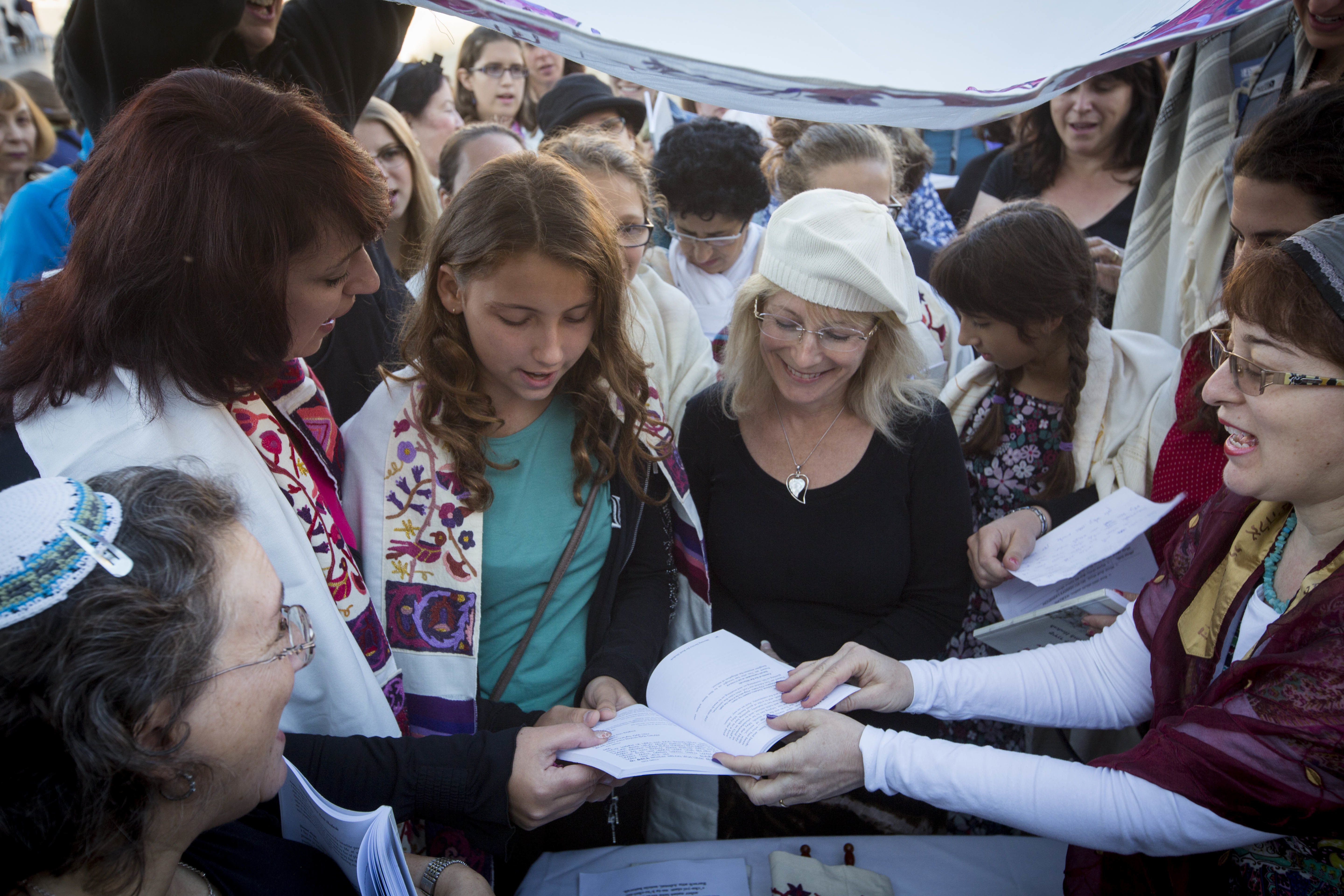by Lexi Erdheim, HUC-JIR Rabbinic Student and Women of the Wall Intern
The month of Heshvan is distinct in the Jewish calendar because it is the only month without any holidays. It is “acharei hachagim” – after the long slew of holidays in Tishrei and is associated with getting back into the swing of things and getting back to work. But as far as I am concerned, we began this Heshvan with something profound to celebrate – the first time women have legally and proudly chanted from a sefer torah at the Kotel in twenty six years.
Abraham Joshua Heschel famously stated when he marched for Civil Rights in Selma, Alabama that he, “felt as if he were praying with his feet.” This past Friday morning at Women of the Wall Rosh Hodesh prayers, I experienced the opposite: I felt as though I were protesting with my prayers. Usually when I pray, I include in my kavana (prayers from my heart rather than prayers on the page) thoughts and hopes for equality and justice. This Friday morning I had the privilege of realizing equality and justice through not only the intention of my prayer, but through the act of prayer itself.
This Rosh Hodesh was my first with Women of the Wall, and I was extremely fortunate to be a part of history. As Sasha chanted Torah as a bat mitzvah, I looked over to see Lesley Sachs, the executive director of Women of the Wall, overcome with joy, tears welling in her eyes. In that moment, I could only imagine her overwhelming sense of pride and accomplishment. I cannot even begin to comprehend how powerful it was for a woman who had been fighting for women’s right to free prayer at the Kotel of over a quarter of a century to witness a young girl chant from a sefer torah. I was overwhelmed by gratitude for the tireless work that Lesley and all of the brave women who have participated in Women of the Wall have done.
Sadly, I know that despite this momentous occasion, the battle is not over. I am reminded of a quote from Pirkei Avot (Ethics of the Fathers):
“לא עליך המלאכה לגמור, ולא אתה בן חורין לבטל ממנה”
“You are not obligated to complete the work, but neither are you free to desist from it”
(Pirkei Avot, 2:21)
As I begin my internship with Women of the Wall, I know that perhaps I will not be able to complete the work in the next few months, or over the course of my rabbinate or perhaps even my lifetime, but I look forward to the challenges, the struggles, and the triumphs that the work brings.

